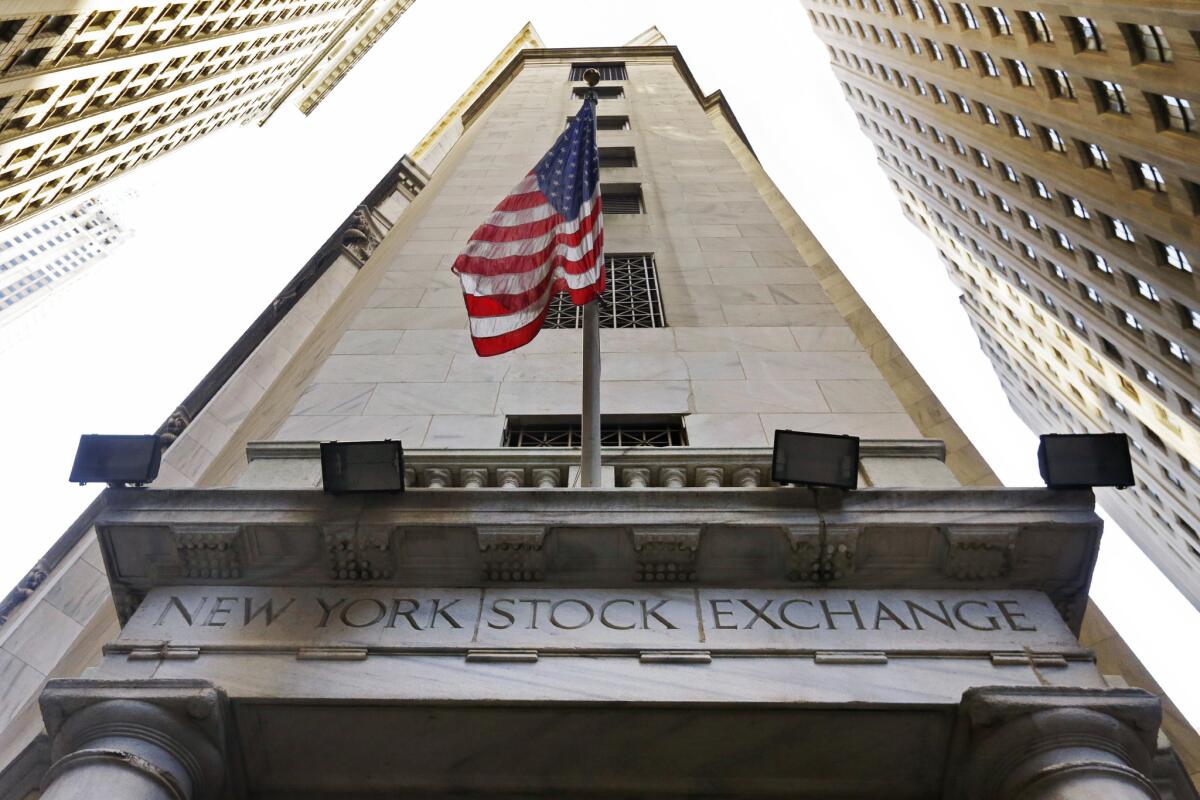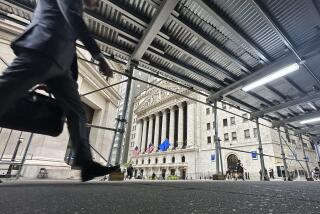Weak U.S. hiring report sends stocks lower

U.S. and global stock indexes moved lower for a second day Wednesday following a dismal report on job creation that gave investors concern over the state of the economy. That data followed a round of economic news out of China and Europe on Tuesday that also suggested sluggish growth.
The Dow Jones industrial average fell 99.65 points, or 0.6%, to 17,651.26. The Standard & Poor’s 500 index sank 12.25 points, or 0.6%, to 2,051.12 and the Nasdaq composite dropped 37.58 points, or 0.8%, to 4,725.64.
Stocks started lower and remained there throughout the day after payroll processor ADP released a survey showing that U.S. companies hired workers in April at the slowest pace in three years.
ADP said private companies hired 156,000 workers in April, down from 194,000 in March. The figure was significantly worse than expected. The weak reading bodes poorly for the broader job market survey due out Friday from the Labor Department, which is one of the most closely watched reports on the economic calendar. Economists expect the government to report that U.S. employers created 200,000 jobs last month and that the unemployment rate held steady at 5%.
Other economic indicators out of Europe were disappointing Wednesday. Retail sales fell 0.5% during March from the previous month. Investors had expected a more modest decline of 0.1%.
Financial information company Markit said its purchasing managers index for the region, a gauge of business activity, slipped to 53 in April from 53.1 the previous month. Though still above the 50 threshold indicating expansion, the reading has fallen from the start of the year.
While stocks are well above the lows they hit in February, investors remain reluctant to move heavily back into the stock market. The S&P 500 has bounced off the 2,100-point mark several times in the last six months, most recently last week. That means investors feel stocks are too expensive to make big bets, and are waiting to see more positive data or earnings, traders say.
“We’ve run out of gas here. We are going to need some sort of catalyst to move this market higher, but I don’t know what that catalyst might be. Earnings have been OK, but not strong enough to say it’s time to buy,” said Rob Bernstone, a managing director in equity trading at Credit Suisse.
Among individual companies, Intercontinental Exchange, the parent company of the New York Stock Exchange, jumped 7% to $258.49 after the company announced it would not bid for the London Stock Exchange. The announcement came at the same time Intercontinental was reporting first-quarter earnings, which were better than expected.
Priceline sank 7.5% to $1,253.04 after the travel company warned that its profit would slow in the second quarter.
Benchmark U.S. crude rose 13 cents to $43.78 per barrel on the New York Mercantile Exchange. Brent crude, used to price international oils, fell 35 cents to $44.62 a barrel in London. In other energy trading in New York, wholesale gasoline fell two cents to $1.49 a barrel, heating oil fell half a penny to $1.33 a gallon and natural gas rose six cents to $2.14 per 1,000 cubic feet.
U.S. bond prices rose. The yield on the 10-year U.S. Treasury note edged down to 1.77% from 1.80%. The dollar rose to 106.93 yen from 106.41 yen late Tuesday. The euro fell to $1.1498 from $1.1505.
Gold fell $17.40 to $1,274.40 an ounce, silver fell 20 cents to $17.28 an ounce and copper fell 3 cents to $2.18 a pound.
More to Read
Inside the business of entertainment
The Wide Shot brings you news, analysis and insights on everything from streaming wars to production — and what it all means for the future.
You may occasionally receive promotional content from the Los Angeles Times.










